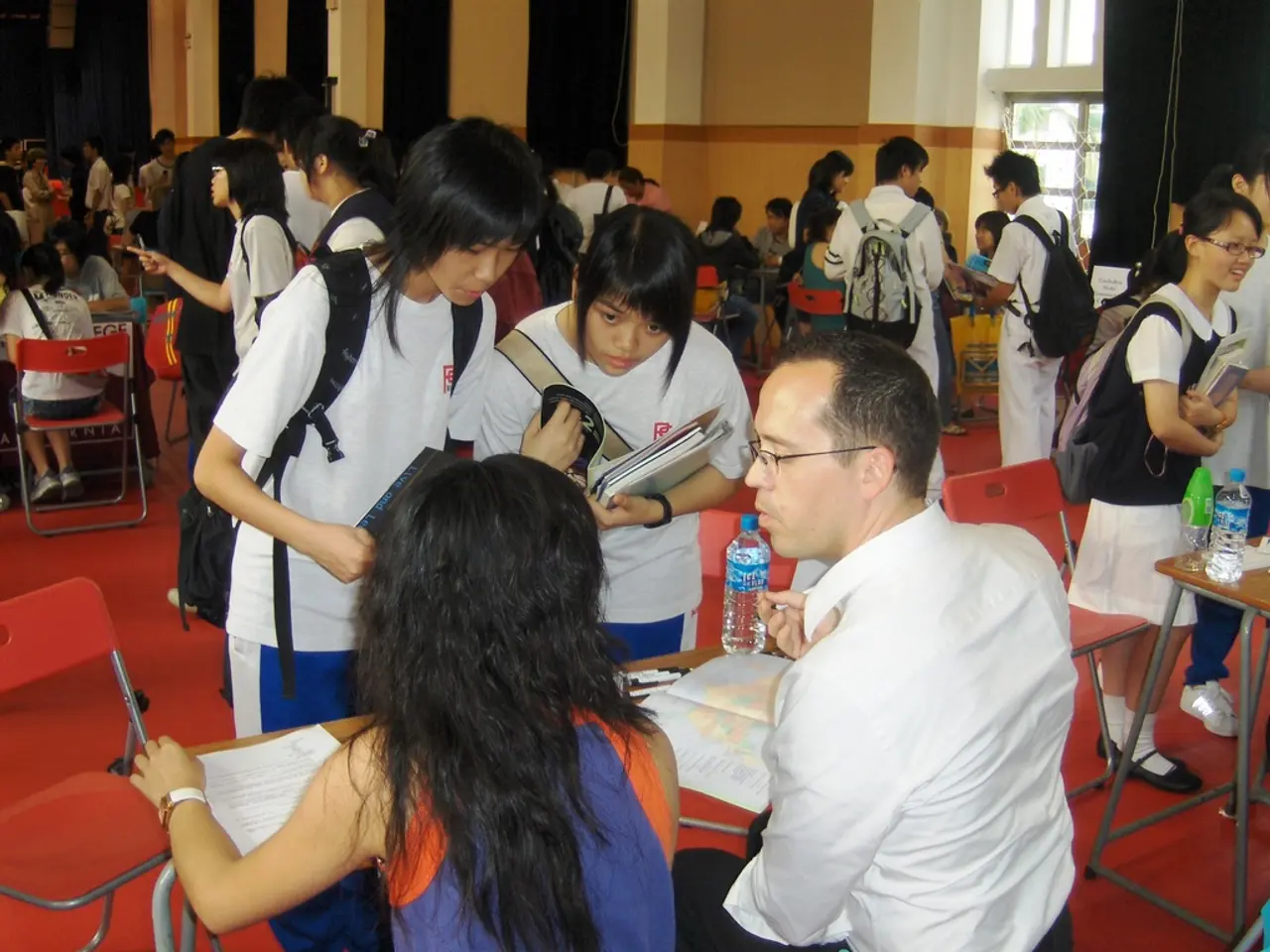State government's plan for School Compass NRW 2030: Enhancing fundamental competencies
The North Rhine-Westphalia state government has launched a comprehensive education program called "School Compass NRW 2030" to address the significant issue of students having deficits in reading, writing, and arithmetic. The program aims to strengthen the promotion of basic skills in primary schools through more lessons in German and mathematics.
The goal of the "School Compass NRW 2030" program is to improve the mastery of central skills in these subjects for all children in North Rhine-Westphalia. To achieve this, the program is designed to closely monitor learning progress and react promptly to any deficits. This includes expanded learning level assessments in grades 2, 5, and 7, in addition to the existing assessments in grades 3 and 8.
A digital feedback system is planned to be introduced for individual student support, allowing students to provide anonymous feedback on their well-being and family support. This system is intended to help teachers better recognize and address individual challenges.
However, the program is not met with universal approval. Teacher associations have expressed concerns about the potential increase in pressure on schools and the effectiveness of data-driven measures in the absence of adequate resources. They fear that a lack of personnel and financial resources could hinder the program's effectiveness.
To address these concerns, the Ministry of Education has stated that the implementation of the "School Compass NRW 2030" program will be gradual to avoid overburdening teachers. Mandatory daily reading times have been introduced as part of the program, but the rest of its measures will be rolled out over time.
The "School Compass NRW 2030" program draws inspiration from successful education systems in regions like Canada and Baden-Württemberg, where comparable education systems have been in use for years. The program's gradual implementation strategy is designed to learn from these examples and adapt them to the specific needs of North Rhine-Westphalia's schools and students.
The OECD Teaching Compass and the Assessment 3.0 initiative offer insight into broader trends in educational reform. These initiatives emphasize the importance of fostering critical thinking, collaboration, creativity, adaptability, and self-direction in students. The "School Compass NRW 2030" program aligns with these trends by focusing on real-world skills and promoting a more holistic learning experience.
As the "School Compass NRW 2030" program continues to evolve, it will be interesting to see how it adapts to the unique challenges and opportunities of North Rhine-Westphalia's schools and students. The program's gradual implementation strategy, coupled with its focus on real-world skills and holistic learning, offers a promising approach to addressing the issue of learning deficits in German and mathematics.
The "School Compass NRW 2030" program, inspired by successful education systems, aims to foster not only mastery of central skills in German and mathematics but also the development of critical thinking, collaboration, creativity, adaptability, and self-direction in students – essential components of education-and-self-development and learning. To monitor progress and address deficits, the program introduces expanded learning level assessments at various grade levels, as well as a digital feedback system for individual student support.








